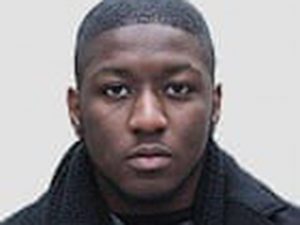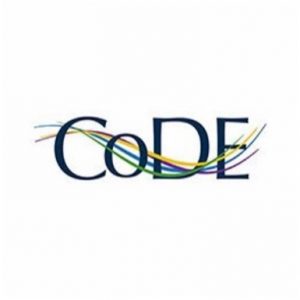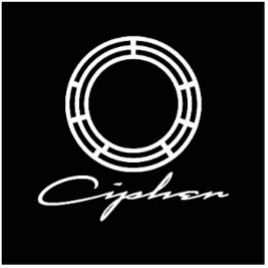 We should engage with rather than criminalise creative forms like UK Drill
We should engage with rather than criminalise creative forms like UK Drill
by Franklyn Addo
I began to understand the power of music to reflect and challenge social realities from a very young age. I recall for instance first listening to Dizzee Rascal’s Mercury Award winning 2003 album Boy In Da Corner after receiving the CD as a gift from my older sister. The album’s urgent tempo and abrasive, discordant sound (which would typify the genre that would come to be referred to as Grime) was perfectly reflective of the greyscale, concrete surroundings of the inner-city council estates that many listeners like myself inhabited. I remember feeling proud to have been recognised and represented by an artist as prominent as Dizzee as he rhymed on songs about socialising in familiar East London locations like Hackney and Bow, and wearing his trousers ‘ridiculously low’, per the popular fashion trend within Black British youth culture at the time. While the album provocatively explores themes including drugs, sex, and violence (and arguably was not age-appropriate for my consumption given that I was just entering adolescence upon receiving it), it is rightfully critically acclaimed for its astute social commentary throughout.
It was my early exposure to output like this which compelled me to write my own music. Listening to and writing raps quickly became therapeutic processes for me, in addition to my engaging with other creative forms like prose. Rap and its associated genres in particular provided a lens and language through which I could perceive and begin to articulate the social context I found myself having to carefully navigate: one of exclusion, relative material deprivation, and limited prospects, all informed and compounded by structural racism. This precarious context of lack of opportunity and overpolicing culminated in issues like serious youth violence and the accelerated criminalising of far too many of my peers. My early creative content could be considered ‘conscious’ in its direct engagement with such themes and in being informed by community and faith. It was much to my surprise and disappointment therefore to see my music branded as ‘Gangsta Rap’ in the headlines of newspapers in 2011. These articles were published in response to my decision to forego an offer to attend Cambridge University in favour of studying and continuing to engage with creativity in London.
My aversion to being associated with Gangsta Rap was not based on some sort of moral judgement against it. The influence of artists like Tupac who documented life in impoverished communities in America was in fact inescapable for me and would become very important to my personal perspective and artistry: for all the criticism it has attracted, Gangsta Rap must still be celebrated as a Black cultural product innovated from adversity, and an irresistible art form which would advance the entertainment industry worldwide.
The media’s invocation of the concept of gangs in relation to myself, my own music, and my educational pathway, however, was sloppy and incongruous. It was ultimately steeped in racist projection and served to conjure negative connotations and incite public criticism towards me. This disregard for context, lack of cultural nuance and stereotypical reductivism prove to have lived impacts.
Such problematic labelling affected me personally in 2011 and has plagued young Black artists for generations (as well as young Black people more generally). During the early Grime era for instance, which figureheads such as Dizzee Rascal helped to usher in, the entire genre and its young, mainly Black participants were blackballed and ostracized from legitimate radio play and from mainstream venues due to being scapegoated for violence across the city. The same is true of the UK Rap era that followed, which saw forerunners like Giggs experience extreme resistance against the development of their music careers. Bureaucratic procedures within the London Metropolitan Police like risk assessment Form 696 were disproportionately relied on when Black artists and audiences were concerned, with licenses for events routinely revoked on grounds often dubious at best.
UK Drill music is the latest Black British cultural product to become the subject of such disproportionate scrutiny and suspicion. The genre thrives from a DIY spirit comparable to that which birthed the Grime scene, and benefits from a contemporary context of advanced technology which makes music and video creation and distribution cheaper, more efficient, and more accessible to all. Its soundscapes are often melodically sparse and ominous, underpinned by bold basslines and frantic drum rhythms.
UK Drill is also understood to be distinguished by a unique focus on particularly shocking and confrontational content which explores themes of violence and criminality. If the genre is indeed more aggressive or nihilistic than its predecessors, this is likely more than anything else to do with its young participants having inherited a very bleak social circumstance, with youth and other public services being systematically decimated by Conservative administrations over more than a decade, coupled with entrenched and widening inequality, and draconian and discriminatory policing. Furthermore, contrary to the automatic conflation of all such music with criminality and violence, my experience of working with young people in settings ranging from youth clubs to schools convinces me that the vast majority of the creators or core consumers of UK Drill have aspirations towards legitimate success and aren’t committed to lives of crime. Despite this fact, the full force of the law is being brandished against the genre.
In 2019, UK Drill duo Skengdo and AM became the first to receive (suspended) prison sentences for breaching their gang injunction by performing their song Attempted 1.0. at Camden Venue KOKO. Although the Met Police Unit Operation Trident has been disbanded, the Gangs Matrix is one of the updated means through which the Met Police surveil and apprehend again mainly Black young people for merely following certain pages on social media platforms like Instagram or Snapchat or consuming UK Drill associated content on YouTube. Also extremely worrisome is the fact that prosecutors are routinely and increasingly successfully relying on Drill music lyrics and videos to achieve convictions in court, even when any connections to real life incidents are tenuous and in cases when alleged crimes have transpired years after the original publication of the musical content relied on.
It is very important that these practices are scrutinised and mitigated against, as they can lead to horrifying miscarriages of justice and threaten to erode civil liberties even further. In this context, the work of the Prosecuting Rap network becomes all the more urgent, both in contesting the use of rap and such other questionable ‘evidence’ in court cases through legal challenge and research as well as in raising awareness among the general public about these opaque, unjust proceedings. The goal is to encourage the courts to focus on due process and hard evidence like facts and forensics to determine culpability rather than taking creative endeavours out of context and reifying cultural stereotypes about some inherent disposition of young Black people towards violence. Rather than criminalising creative expression, furthermore, and blaming longstanding societal woes like youth violence on newly emerged cultural forms like UK Drill music, we would benefit more from engaging with them, listening to what they tell us about wider society and harnessing them as tools for social impact.
March 2022




